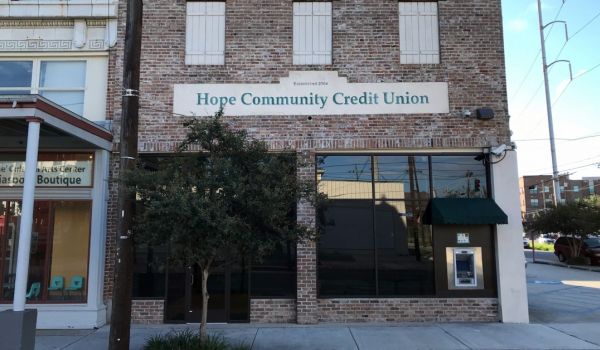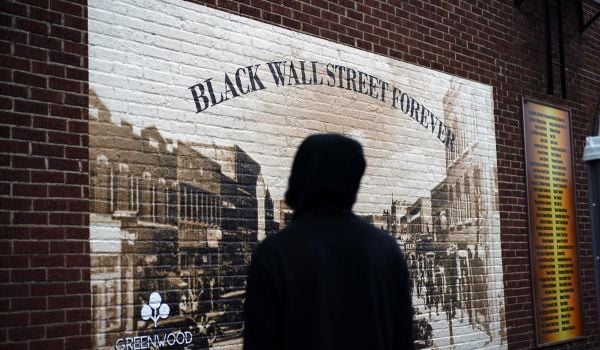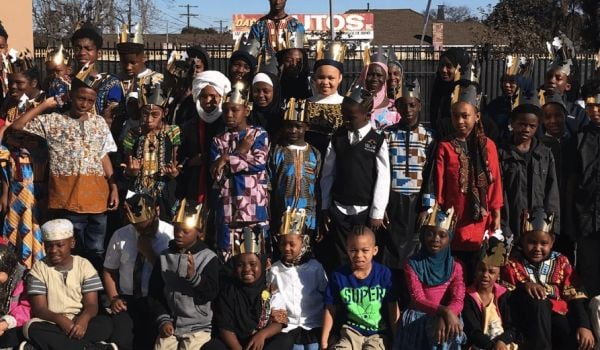When 2020 arrived, Michael A. Johnson’s Minneapolis-based event company was taking off. He was in conversation about collaborating with everyone from P. Diddy’s team on Revolt Summit, a hip hop-focused cultural event series, to Rhymesayers on their annual hip hop music festival. Then the pandemic hit.
“Everything we were negotiating had to be canceled and deposits had to be refunded. We had to just halt operations altogether,” Johnson recalls. By the third or fourth stay at home order, he realized it was time to rethink his long-term strategy.
“I started thinking about what I could do to stay afloat and continue helping the people in the community I’ve built.”
That was when Johnson remembered the complaint he had encountered again and again while planning a previous conference on Black empowerment and technology. “I kept hearing the need for a pipeline” of Black talent for tech roles, he says. “The corporations that sponsored the event appeared to be willing to hire diversely.”
Johnson decided to start building that pipeline in Minnesota in April of 2020, and that was when Black Tech Talent was born.
The goal of the organization is two-fold, to help companies find the Black technologists they’re looking for while connecting Black tech workers with roles opportunities they rarely have access to. Today, the group boasts over 7,000 subscribers and counts corporate giants like Best Buy, BluDot, the Minnesota Timberwolves and American Express among its partners.
The year that Johnson launched Black Tech Talent, Black people made up only single-digit percentages of the workforce across major tech companies. Despite making up about 13% of the labor force, Black people comprised just 2.9% of the workforce at Salesforce, 3.8% at Facebook, 4.4% at Slack, 4.5% at Microsoft and 6% at Twitter, according to the Los Angeles Times.
William Lazonick, a professor of economics emeritus at the University of Massachusetts and president of the Academic-Industry Research Network, explains that such disparities have been persistent — and a long time in the making.
Coming out of World War II and into the 1960s, the labor market was a white man’s world in which pensions and life-long careers at one company reigned supreme. As the Equal Employment Opportunity Commission formed in 1965, such long-term benefits previously associated with white male labor began to evaporate as companies — including tech giants of the time like IBM, HP and Motorola — started hiring African Americans in larger, but still comparatively small, numbers.
As the notion of spending an entire career at one company dissolved, Lazonick explains, our social networks became an increasingly important job-finding tool. But because there are so few Black workers in these companies or the elite institutions they often look to hire from to start with, Lazonick says, Black people don’t have the crucial social networks to call upon to find such positions.
While retention, promotion and equal pay issues are still pervasive after new hires of color get through the door, Black Tech Talent focuses on creating connections to companies that people of color often cannot access due to these networks. Black Tech Talent started as a job board with a pay-to-post model that charges companies and is free for job seekers.
“The goal was always for it to be bigger than that,” Johnson says. “It was our Trojan Horse to get into the door with an affordable product.”
In the summer of 2020, Black Tech Talent expanded into podcasting in order to build brand awareness and highlight Black people in tech.
Last year the group hosted its first summit, which saw participation from 10 different countries, many from around Africa. “We wanted to prove that our community not only existed, but that they saw the value in what we were doing,” he says. The event and others like it create a space for Black technologists to network with corporate sponsors and representatives, forging the critical in-roads that Lazonick says are essential to success in technology careers today.
Johnson credits Black Tech Talent’s strategic expansion from job board into podcast and, finally, into events with much of its success. “We had a year of just putting out content and utilizing social media marketing to build this narrative. Then doing the summit expanded the community that much more,” he says. Since then, growth has been organic.
While continuing to host several events including family-focused ones intended to pique the interests of Black children in particular, this year the group began offering direct recruiting services. Johnson is currently working with companies like BluDot to place Black technologists among their ranks and with Best Buy to expand Black Tech Talent’s efforts to Atlanta.
Average salaries for tech workers have broken into the six digits, applicant pools are shrinking, and major tech companies’ diversity pledges and marketing toward people of color is growing. Still, racial disparities in hiring and in pay persist.
“This is the moment for us to come up economically and be included economically,” Johnson said. “We know the government is never going to do reparations. No one is going to come help us. This is a way for us to help ourselves.”

Cinnamon Janzer is a freelance journalist based in Minneapolis. Her work has appeared in National Geographic, U.S. News & World Report, Rewire.news, and more. She holds an MA in Social Design, with a specialization in intervention design, from the Maryland Institute College of Art and a BA in Cultural Anthropology and Fine Art from the University of Minnesota, Twin Cities.
Follow Cinnamon .(JavaScript must be enabled to view this email address)
















